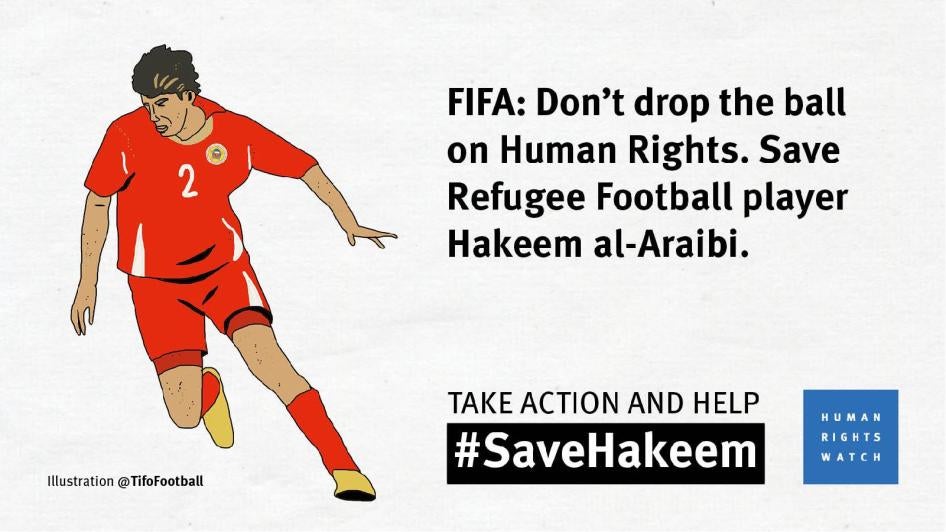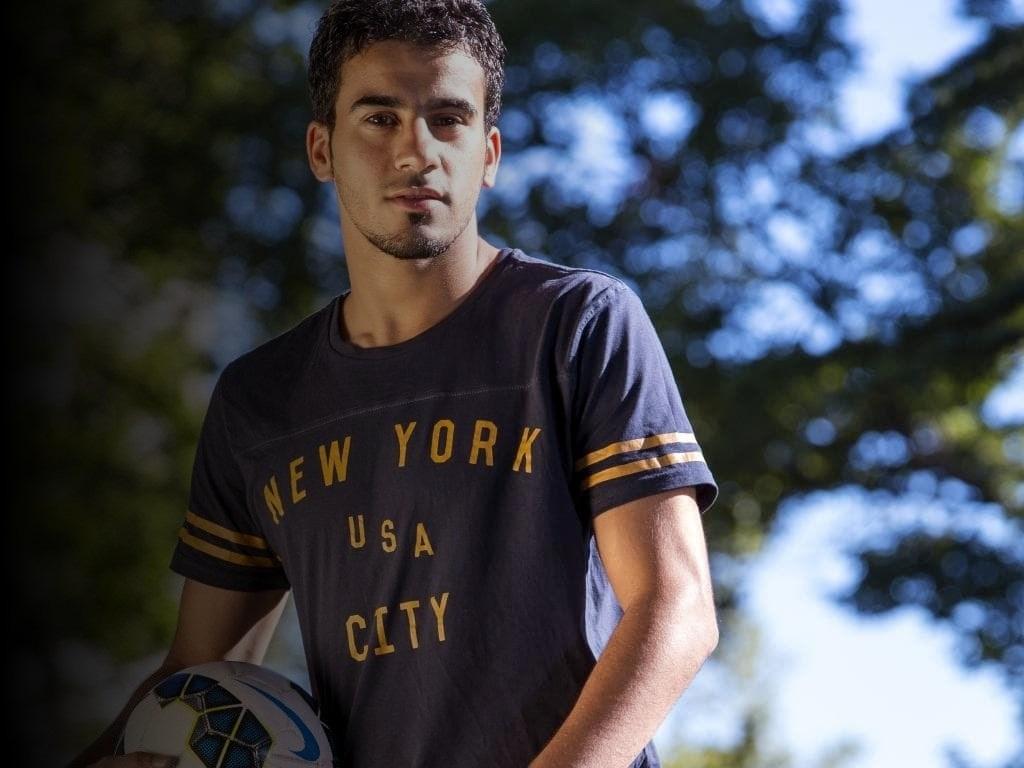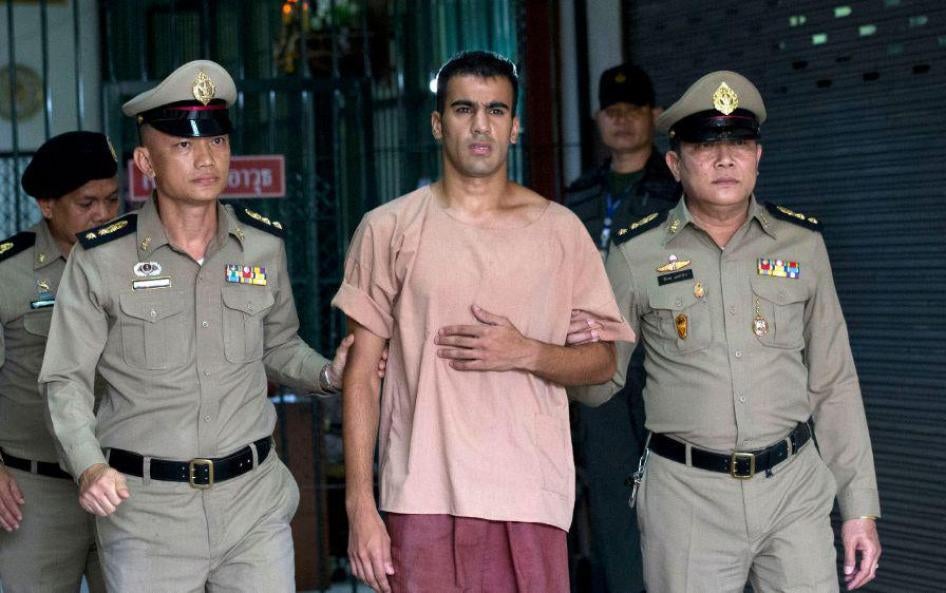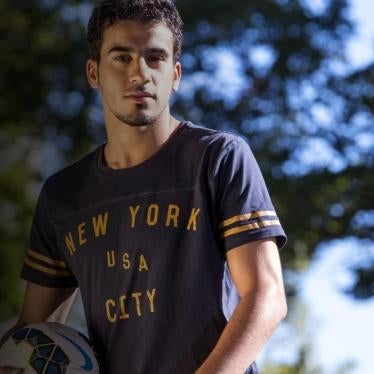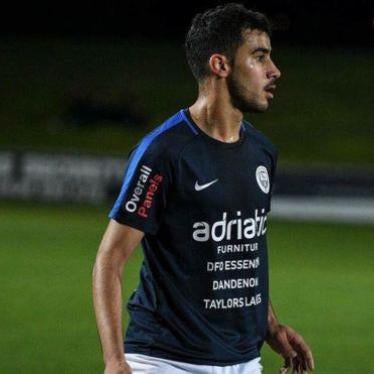On Monday the football world was shocked by the appearance at a Bangkok court of refugee player Hakeem al-Araibi, brought in leg shackles and barefoot to face extradition to Bahrain, a country where he says he was tortured and fears for his life.
Al-Araibi is a former member of Bahrain’s national soccer team who was detained and tortured following the 2011 Arab Spring protests in that country. He fled the country and made it to Australia, where he was granted refugee status and joined the professional team Pascoe Vale FC in Melbourne.
Thai authorities took him into custody on November 27 when he arrived in Thailand with his wife for their honeymoon on a “Red Notice” filed by Bahrain seeking his deportation. But Thailand could and should have released him and allowed him to return to Australia when it became clear that the request by Bahrain violated Interpol rules.
In December, al-Araibi spoke with me from his detention center cell in Thailand, before he was moved to a jail for criminals, where his jailers took away his phone.
“Bahrain is a state that has no human rights,” he said. “My life is in danger.”
Those words need to be heeded now.
Al-Araibi told me he understood that Bahrain’s ruling royal family was after him for speaking out about the torture of athletes there. But he was bewildered about how he could possibly have been arrested when Australia had already recognized his refugee status and granted him asylum through its long and rigorous procedure. And he was frightened. His arrest has interrupted not just his honeymoon in Thailand—but possibly his whole life.
The Bahraini government’s interest in obtaining al-Araibi’s extradition is not about any crime committed in Bahrain—it is naked political persecution. As a refugee he shouldn’t be returned to Bahrain is clear. That should be the end of the story.
Australia’s Prime Minister Scott Morrison and Foreign Minister Marise Payne have both demanded that al-Araibi, as a recognized refugee in Australia, be returned to his wife and professional team in Melbourne.
Thailand’s prime minister, Prayut Chan-o-cha, should call a halt to this process. He can at any time confirm Australia’s determination that Hakeem is a refugee and send him straight home to Australia, and he should.
If Gen. Prayut doesn’t act immediately, governments, the United Nations refugee agency, concerned citizens, and athletes and FIFA should pressure Prayut to do the right thing.
In the last month FIFA and International Olympic Committee leaders have called in public for al-Araibi’s release, and FIFA took the important step of sending its head of sustainability and human rights, Federico Addiechi, from the House of Football in Zurich to a steamy Bangkok criminal courtroom for the extradition hearing. That was the right thing to do.
FIFA has recently made numerous reforms to uphold human rights, and also has important leverage to bring to bear on governments so that al-Araibi won’t be forcibly returned to Bahrain.
With Thailand’s decision to deny bail and jail al-Araibi until the next court appearance on April 22, FIFA must do more, starting at the top. FIFA President Gianni Infantino—whose voice has not yet been heard on al-Arabi’s case—should speak out on his behalf. FIFA should deploy the full force of its soft power in the case, including pointing out that returning a refugee to the real risk of harm or persecution violates international law and FIFA’s own Human Rights Policy.
FIFA’s Vice President is Sheikh Salman al-Khalifa, a member of Bahrain’s ruling family. Al-Araibi has accused Sheikh Salman of failing to stop the persecution and torture of Bahraini athletes who joined the country’s 2011 protests. But Sheikh Salman as FIFA’s vice president, has a responsibility to speak out to stop the extradition process, and if he is concerned about his future in Asian football, he will.
“FIFA should protect me and all players,” al-Arabi told me. “I want to tell President Infantino that he has the power to save my life—and I am asking him to help.”
FIFA’s human rights policies will ring hollow indeed if Bahrain succeeds in extraditing a player whose only “crime” was to expose torture of his fellow athletes by a ruling family that includes FIFA Vice President Sheikh Salman.
No one should be distracted by the legal process in Thailand. There is one simple solution to his case. All international efforts must now go to getting General Prayut to act to end this travesty in Thailand.
Hakeem’s final words to me were: "In case I don't make it to Australia, please continue to speak and shed light."

